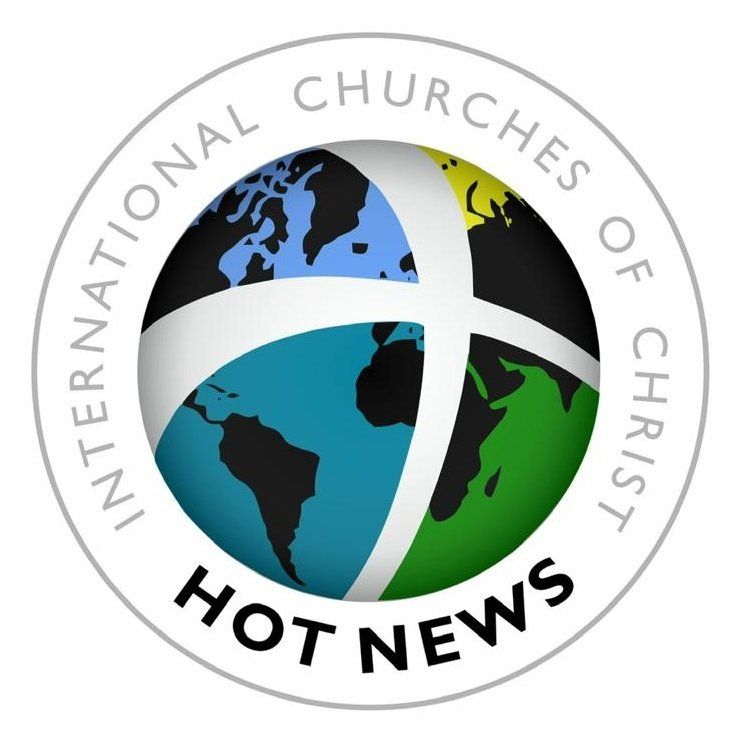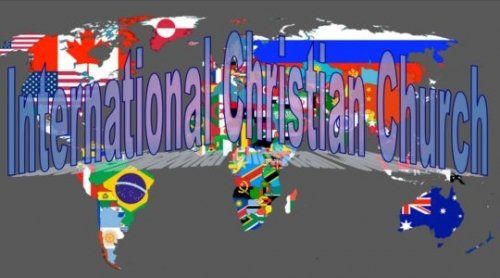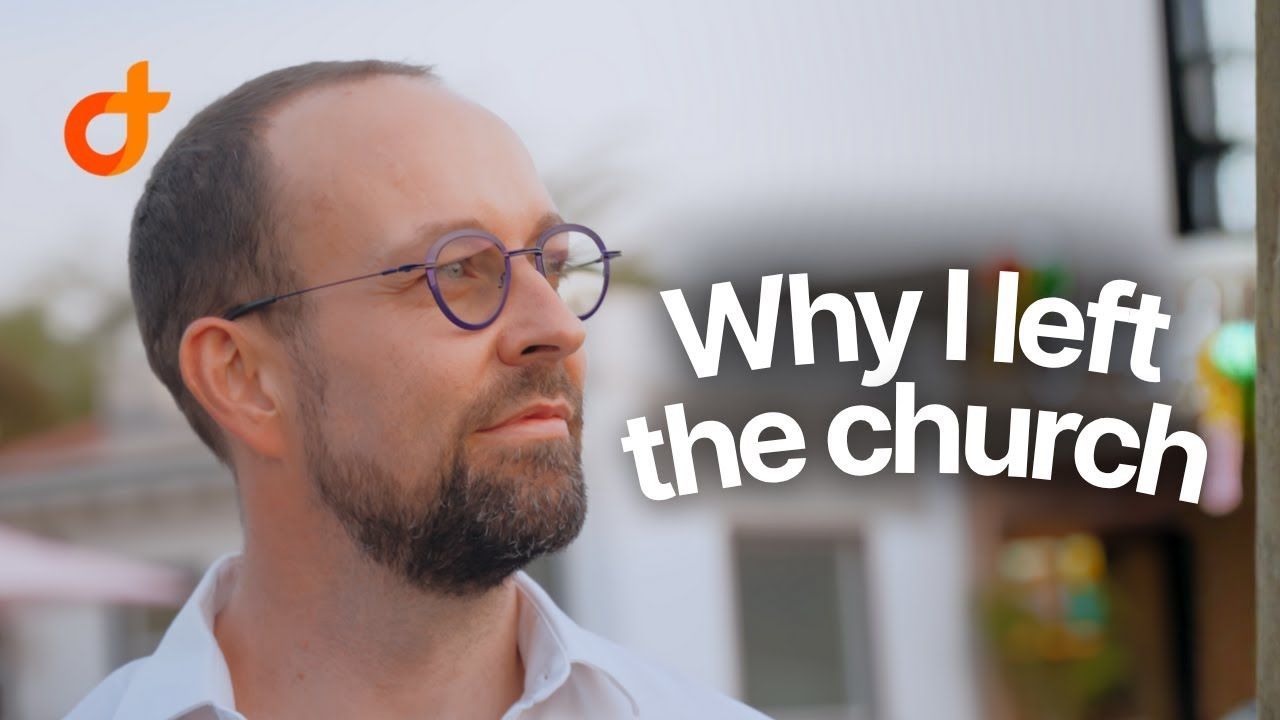HotNews Responds to the ICC
Mike Taliaferro • October 18, 2017
While it has been common place for critical articles about the ICOC to appear previously at the Portland website (when Mckean led that congregation) and now at the City of Angels Church's website where Kip McKean is the minister, it seemed time for us here at ICOC Hot News to respond.
Recently Raul Moreno wrote a ‘guest editorial’ so filled with half truth and misrepresentation that we felt it appropriate to share our thoughts on the issue. This editorial is not an official voice of the ICOC, but rather just our own opinion about things.
Raul Moreno became connected with Kip McKean (and his ICC church) several years ago. Members of that movement are called to recruit heavily from the ICOC congregations. When Raul tried to lead his ICOC church in Santiago, Chile, into Kip’s new movement, he was disciplined for being divisive. The vast majority (90%) of the membership stayed in the ICOC when he left. He recently wrote an editorial to defend his divisive behavior. We take issue with several of his statements.
For instance, in defense of his departure, he says that, “I became convinced that the ICOC, for the most part, that I was affiliated with was no longer a movement, whose dream was to evangelize the world in our generation.” I’d like to state for the record that I do not know a single evangelist or elder in the ICOC who has renounced this dream. In fact, we are still taking up millions of dollars for mission work around the world. We are still actively building up our churches in over 150 countries. Africa, for instance, has a 30 year plan that begins with the cities and ends with the villages. ICOC churches have planted nearly 100 churches in the last four years. Yes, we hit a very difficult patch in 2003. It was very challenging. But most of us did not cut and run during the direst time in our history. While some ran off and started “new movements” simply so that they could be in charge once again, most of us stayed with the churches that we began and did not desert “the army of God” that was still fighting in the field. We are still giving our lives to evangelize the world, and we want to do it in our generation. If it takes longer, so be it. The Holy Spirit is in charge. But we all want to see it happen in our generation.
Of course, this begs a question. Since the Portland Movement so often talks about winning the world in one generation, well, hasn’t Kip had one generation already to do it? Didn’t he start trying in 1979 in Boston? It seems to me that after 30 years he is back to square one. Since you guys are so set on World evangelization taking only one generation, then why is it taking Kip so long? It appears that Kip will need to try a second time to accomplish his goal, and it will take Kip himself at least two generations to do the job. So, why are you so critical of us? We in the ICOC have no idea how long it will take to evangelize the world, but we are committed to doing it in our generation. Please understand that the dream is very much alive in the ICOC. In fact, we are the ones who stood faithful during the tough times in order to see that dream come true.
[Editors Note] Beginning in 2006 with 800 members the ICC, now 12 years later has a claimed worldwide membership of about 7000. Although, with an increasing number of people leaving the ICC each year even that growth may be in doubt. One of the ICC Evangelists recently wrote:
"Look at the fall away rate around the ICC movement. It is close to 80% now. Even in LA there’s a near 90% fall away rate. (369 people were baptized in and 337 people fell away in LA in 2015)"
Another statement that caught our attention was, “The mainline Churches of Christ and the ICOC of today in general believe that the principles and methodologies that can be applied to the church are found only in the New Testament. They embrace the teachings of the American restoration movement of the 1800’s. Thomas Campbell, one of the early restoration movement leaders, coined the phrase, 'Speak where the Bible speaks and be silent where the Bible is silent.' In other words, if there was not an explicit command or pattern in the New Testament, then any other practice would be viewed 'unscriptural.' For example, it became sin in the eyes of the mainline Church of Christ to use musical instruments in the worship service, because it does not occur in the churches in the New Testament, except in heaven in Revelation."
This statement is a complete misrepresentation of the ICOC. First of all, church buildings, pews, song books, Bible Talks, discipleship partners, Bring Your Neighbor Day, sound amplification, communion trays, and printed invitations are not found in the pages of the New Testament. We have no problem with them. They are obviously expedient and useful in carrying out the commands found in the Bible. I know of no evangelist or elder in the ICOC who believes that any practice not mentioned in the Bible is “unscriptural.” And you must know, Raul, that most of our congregations use musical instruments in their worship services. Why do you accuse us of something we simply do not believe? Most of us believe that we are able to do things that are not explicitly commanded or patterned in the New Testament, as long as they are helpful. We just don’t agree with YOUR practices recently.
Another statement you make is, “This clash of Biblical interpretation and application ignited the events of 2002-2003. Concepts such as World Sector Leaders, Geographic Sector Leaders, Lead Evangelists, discipling, Bible Talks, central leadership and a “leader of the movement” were abandoned by most ICOC churches and called “unbiblical.”
You must be joking, Raul! While doctrinal concepts were certainly a part of the discussion, it was not the main problem. What ignited the events of 2003 is that our leader lost the confidence of those he led. The abuse of statistics, the overbearing style of leadership that was harming disciples in many of our churches, and the constant pillaging of US churches to build up the LA church led to many of the problems of 2003. In most people’s opinion, leadership needed to be changed. Our leadership structure never matured to meet the demands of a growing, maturing international family of churches. We had submitted ourselves to a Catholic type system for two decades where all power rested with one man. It became evident that that man needed to sit down for a while and recover himself spiritually. Kip, to his credit, apologized for his sins in various public settings. Change was needed and it began to happen. Shortly after Kip was stepped down, Henry Kriete’s letter ignited the anger of many disciples around the world who had been harmed by certain practices within the church. The next two years were quite painful indeed. As I lived through it all, “Biblical interpretation” was not at the center of the storm. Failed, unbiblical leadership and unresolved conflicts were the cause of the firestorm. It appears that you are trying to rewrite history.
Please note as well that many of the examples of “unbiblical” practices you list are still practiced today in the ICOC. I personally am a “Lead Evangelist”. While no one is using the title of Geographic Sector Leader, we still have many men who carry out similar responsibilities just like Titus did in the New Testament. Obviously, most of our churches have Bible Talks and Discipleship Partners. You need to go back and get your facts straight!
Raul goes on to state that, “In both 1 Corinthians 4:14-21 and Titus 1:5, the principle of authority in discipling is clearly displayed in Paul’s relationship with Timothy and Titus. These Scriptures prove that directional decisions were made outside of a local church, thus promoting unity between the churches and propagating the movement. As Paul said, “This is what I teach everywhere and in every church.” (1 Corinthians 4:17) So in the Scriptures, we see a centralized leadership. Sadly, the norm in the ICOC is autonomy. Why? Because I believe everyone wants their own kingdom.
Ah, Raul, it is WE who want our own kingdom, eh? Not Kip? OK, that’s a stretch. Most of us in the ICOC think that Kip concocts new doctrines to justify HIMSELF having his own kingdom.
Still, I do agree with your point. Paul did direct Timothy and Titus. It is true. It is in the Bible. There is a place for authority to be exercised with young leaders and young, weak, or struggling churches. For instance, many of the smaller African churches look to older more mature congregations in Africa for leadership. While some of our ICOC churches might debate this point, the majority of our churches believe that there is a place for an older congregation to exercise some authority regarding a younger, seedling type church. For example, if the San Antonio congregation sends a young couple over to Corpus Christi to start a church, and after six months they decide to start “praying Jesus into their hearts” for salvation, yes, we would drive over there and in love “straighten out what was lacking.” That is exactly what Titus did among several congregations in Crete (Titus 1:5). (By the way, even the mainline church believes in “oversight” of one church over a new congregation.) So, yes, I agree with you about discipling going on between evangelists in different cities.
But what about, say, the New York City Church? It has thousands of members, along with dozens of evangelists and elders. Boston planted the church in NY in 1983. Should Boston still exercise authority over the NYC church 24 years after its planting? We in the ICOC would agree that it would be strange indeed for Boston to continue to try to exercise authority. Influence and relationships are helpful always. The time for authority, however, has long passed. That is not only the pattern of the Scriptures, but it is intelligent leadership as well. Kip’s insistence on holding all the reins of power over the years was neither effective nor right. Nor was it right that we all allowed him to do so. In fact it led to disaster. Eventually churches must be allowed to grow up and make their own decisions. If that makes me a believer in autonomy, well then, so be it. Several evangelists in your new movement believe exactly as I do on this issue.
Let me quote an earlier article that I helped to write… “There is clear evidence in the New Testament that mature churches were intended to be led locally and maintain responsibility for their own affairs through either the elders (Acts 20:28-31), local evangelists (2 Timothy 4:2-5), or whatever form of local leadership was available in the church (Acts 13:1, Hebrews 13:7, 17 and 24).” The reality of a certain amount of autonomy in local churches is readily seen in the fact that elders were to be appointed in each local church (Acts 14: 23). Moreover, these elders only had rule and authority in the local church where they served (I Pet. 5: 2). At the same time it is obvious from the very writing of the epistles that the early churches were influenced by spiritual leaders from outside their local congregation. For the most part, that influence on their local ministry was according to their spiritual maturity (1 Corinthians, etc.) but established churches were not intended to have their personal matters directed by those from a distance place. Interdependence, encouragement, cooperation and advice are always right and needed. That is what brotherhood is all about. Authority of one church over another has its place initially, but becomes counterproductive as churches mature.
That said, let me ask you a question. You note that Paul directed Timothy and Titus. Did Paul direct Peter? (I know he rebuked him once, yes, but did he direct or disciple Peter?) Did Paul exercise authority over John? You are correct that Paul directed younger leaders in his ministry, but you are wrong to conclude that therefore we must have a centralized Catholic leadership hierarchy that answers back to one man. The New Testament church did not do it. Paul, Peter and John all directed and discipled younger evangelists. We know their names from the scriptures, and even from church history. Still, no one single apostle claimed authority. You are, I suppose, free to appoint Kip as your central leader if you so choose. No one can stop you. We in the ICOC feel that that path is fraught with danger. It works for a while, but then it harms both the leader and the churches in the end. Remember, the apostles did not appoint one apostle to lead the worldwide church. The Roman Catholic Church did that a few centuries later. The apostles refrained. Why then would we want to appoint someone? We feel like we made that mistake already. It didn’t work with us before. We doubt that it will work for you. In fact, we think it is a huge leap to say, “Paul discipled Titus and directed him in Crete,” so we are going to jump all the way over and now say, “therefore, all churches worldwide will be directed centrally.” That is far more than Paul was communicating in Titus 1:5. We in the ICOC don’t go along with worldwide centralized leadership. First, because the apostles never did it. Second, because we are still cleaning up the mess it caused in our churches.
You guys often answer these facts by saying that David was the Lord’s anointed, and that God often used one man to lead his people in the Old Testament. That is true. The difference here is that Jesus still leads his church (Matt 28:18), and he has not instructed us to hand one person all authority on earth. And yes, it is true that David was the Lord’s anointed. But we also know that today, EVERY Christian is anointed (2 Cor 1:21; 1 John 2:20,27). Not just one individual. It was tough enough on Saul, David, and Solomon just leading one nation. They blew it “royally” and often. Imagine how tough it would be to lead the entire world! No wonder the apostles, with all their training from Jesus, did not try to place all authority in one man’s hands.
We understand that what is written in the Old Testament is there to instruct us and encourage us (1 Cor 10:6,11). But we live under the New Covenant. While you say that you are a Bible Church, and not a New Testament church, you do not practice the Old Law, do you? You better be careful. The Old Law is in the Bible. If you start using Old Testament leadership patterns to rebuke us in the ICOC, then you should consider following the WHOLE Bible (James 2:10,11). Maybe you should go all the way and start sacrificing animals and celebrating OT feasts. But of course not. We all know that the old law was done away with at the cross. Today we are Christians, not Jews. We draw encouragement and lessons from the Old Testament, but we learn about the church in the New Testament.
A few years ago, it was a question as to which way our churches would go. Today the vast majority of our churches have prayerfully decided not to be a bunch of independent, strictly autonomous churches. The relational structure in our churches is coming together just like we see it in the Book of Acts, practicing brotherhood, interdependence, cooperation, and mutual respect. Yes, most churches in the ICOC make the final decision about things in their own congregation. But no, we still practice brotherhood. And Raul, let’s be honest. As I stated above, you guys in the Portland movement have evangelists that believe in a certain amount of autonomy just as we do.
[Editors Note] The ICOC family of churches is structured to avoid two extremes. On the one side, overly centralised authority and on the other side disconnected autonomy.
In closing we note that, while we want to be a Church that goes by the whole Bible, we do not want to import Old Testament practices that were right for the NATION of Israel but not right for the CHURCH of Jesus Christ. We also want to note that we practice brotherhood in the ICOC and not strict autonomy. Finally, let us note that we have not lost our dream to win the world in our generation, even though we have hit our bumps at times.
While it was painful to see you guys go, I do hope in the future we will once again be reunited. You were disciplined in Santiago because you were divisive. Thank God that 90% of the members stayed. I hope someday that all of us will come back together in our efforts to win the world in this generation.
Mike Taliaferro
(Editors Note: This article was first published in response to Raul Moreno's editorial, now updated and republished)




